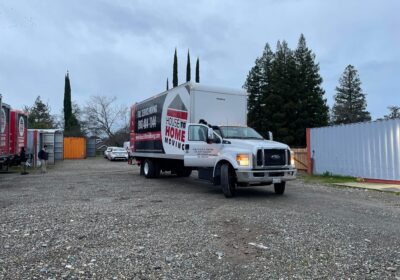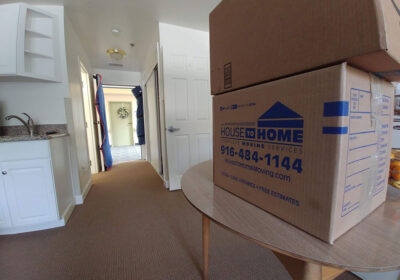 If you’re moving within (“intrastate”) or out of state (“interstate”), or if a damage restoration company is moving or storing your goods while rebuilding your home, did you know there are laws protecting you from predatory “bandit” companies that extort money
If you’re moving within (“intrastate”) or out of state (“interstate”), or if a damage restoration company is moving or storing your goods while rebuilding your home, did you know there are laws protecting you from predatory “bandit” companies that extort money
from customers while holding goods hostage?
Intrastate moving companies that perform moves within California and damage restoration companies that move and store their clients’ goods while a restoration project is underway are required to be licensed by the Bureau of Electronic and Appliance Repair, Home
Furnishings and Thermal Insulation (BEARHFTI), part of the Department of Consumer Affairs.
In addition, interstate moving companies that perform moves across state lines regardless of the point of origin, are required to be licensed by the U.S. Department of Transportation’s Federal Motor Carrier Safety Administration (FMCSA). Moving companies that perform both
intrastate and interstate moves must be licensed by both BEARHFTI and the FMCSA. Existing state law provides for the regulation of any household mover owning or operating motor vehicles in the transportation of property for hire upon the public highways, including
intrastate movers and restoration companies. BEARHFTI became the new licensing and regulatory home for household movers on July 1, 2018, when the Household Movers Act, passed by the State Legislature and signed by Governor Jerry Brown, went into effect. The
Act requires the use of resources to combat unlicensed activity in the moving and storage industry. Interstate movers must comply with the FMCSA’s federal licensing requirements for the transportation of household goods.
“BEARHFTI warns consumers to hire only licensed household moving companies to avoid becoming victims of predatory companies,” said Nicholas Oliver, Chief of BEARHFTI. “These unlicensed movers can extort money from customers, use bait-and-switch tactics, hold
possessions hostage, steal some or all of the items or not insure damaged or destroyed items. We take a hard stance against this illegal activity, and we hope to send a message to bad operators that holding consumer goods hostage for more money will not be tolerated.”
As the new regulator for the industry, the bureau will aggressively seek enforcement actions against unlicensed companies. Investigators plan to use sting operations and work with local law enforcement to identify unlawfully operating businesses which can be cited and fined up
to $5,000 for each violation. The Bureau will also refer violations of the Act to local district or city attorneys for possible prosecution.
Consumers moving within California can check a moving company’s license and find important information at http://www.bearhfti.ca.gov/consumers/movers.shtml.



